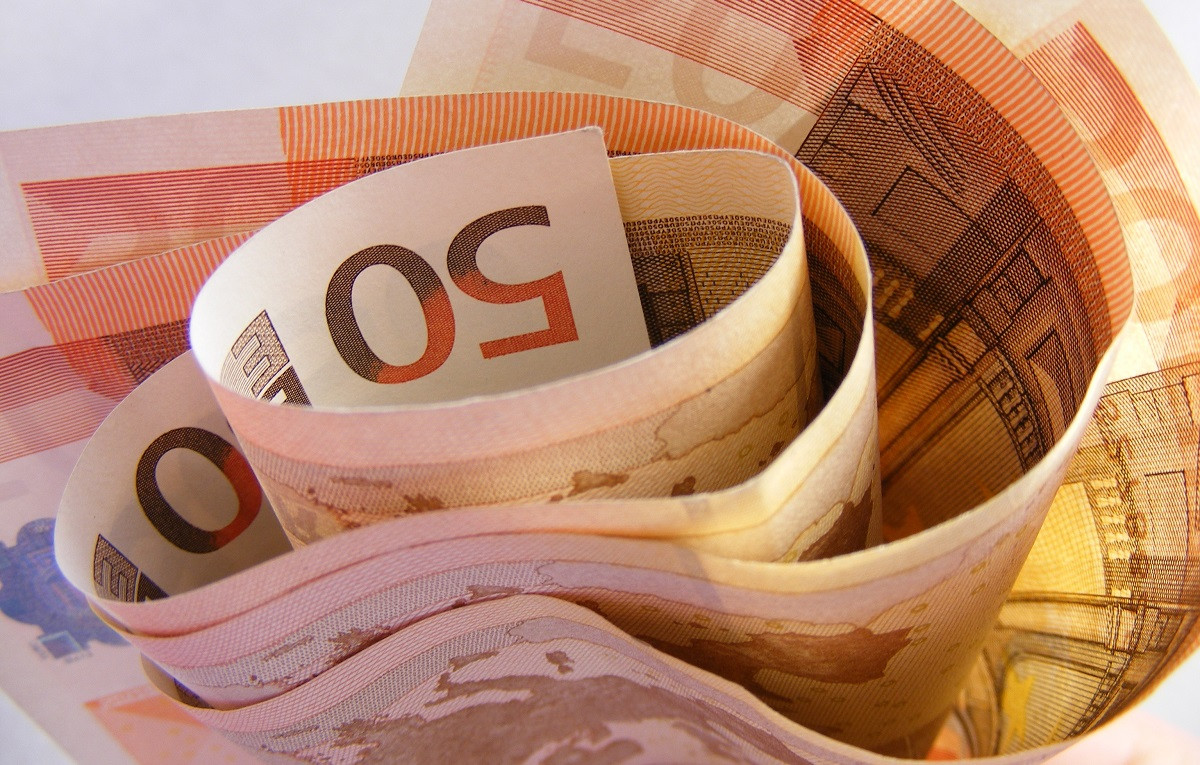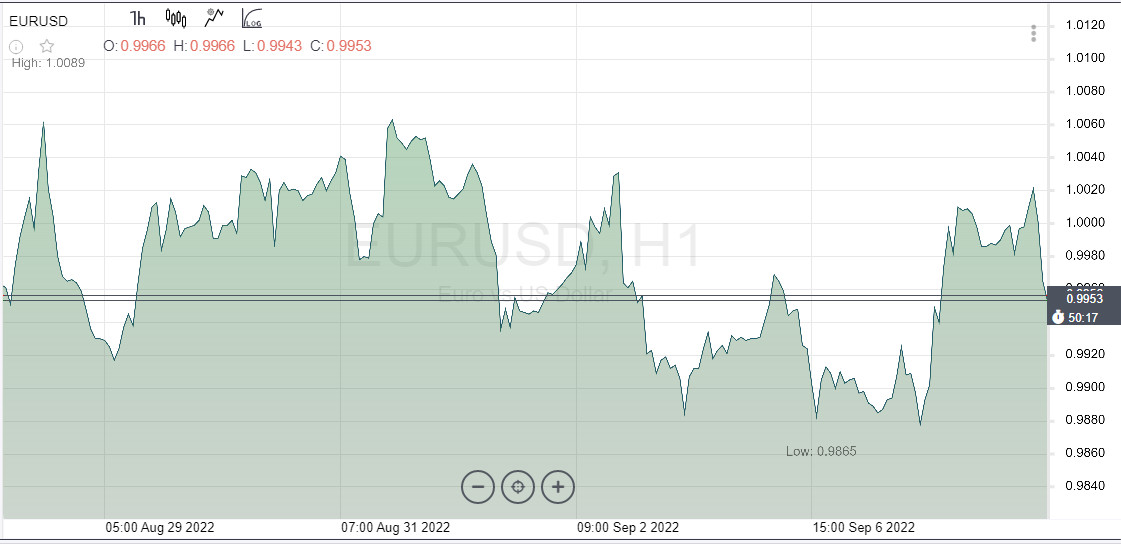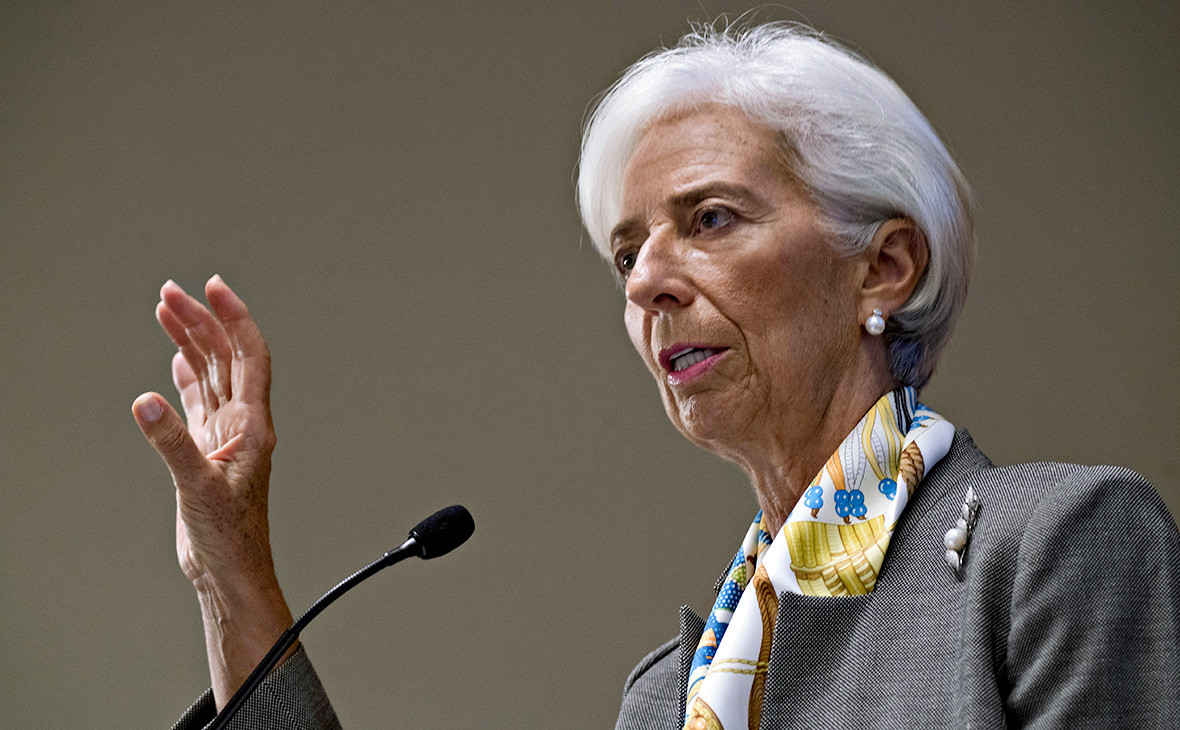
Today the European Central Bank raised the key rate by 75 basis points, the biggest all-time hike. What did the members of the European regulator talk about and what signal did they make about policy tightening?
At the September meeting, the rate hike was stronger than the consensus forecast of 50 basis points. Meanwhile, market players were mostly preparing for a 75 basis point hike, so this increase cannot be called a surprise.
The Euro was trying to fix above 1.0000 after hitting a 20-year low of 0.9864 earlier this week. However, the EUR/USD pair did not manage to stay above parity due to today's news. The pair moved lower again.
The pair showed a very weak momentum and the price did not reach even the level of 1.0090.
If bulls manage to take control over the market in the short term, the pair may test the weekly high of 1.0090. This will open the road to another level of 1.0162. In such a scenario, the downward pressure may be eased and bulls are likely to push the price towards 1.0210.
However, the uptrend looks shaky, there is nothing to support it. The information background is not weak, there are no fundamentals at all at the moment. If there will be any growth, it is likely to be a short-term boost.
In the long run, the EUR/USD pair is expected to remain bearish as long as it trades below 1.0760.

Danske Bank estimates that the euro will continue to decline against the US dollar in the near future. This will be due to slowing growth and the Fed that is strengthening the already robust US dollar.
Inflation may slow down next year, but there is no good reason to expect strong growth in the world economy, which is hitting the ceiling.
"We expect Europe to take the brunt of the hit, given its exposure to cyclical industries and large commodity imports. We expect monetary policies to remain tight and price levels to stay high for a number of years, and the European economies look particularly challenged in this environment," economists at Danske Bank said.
Three leading economic institutes have lowered their forecasts for Europe's largest economy, Germany.
On Thursday, Kiel Institute for the World Economy (Ifw) and Halle Institute for Economic Research (IWH) report that rates will fall in 2023. Notably, June forecasts projected growth.
The IfW reported that the economy would contract by 0.7%, while the IWH gave an even more pessimistic forecast of a 1.4% decline. Leibniz Institute for Economic Research (RWI) lowered its estimate but still expects an increase of 0.8%.
At the end of this year, all three institutions still expect the German economy to grow but not as much as previously forecasted with projections between 1.1% and 1.4%.
Meanwhile, the latest government forecast calls for economic growth of 2.2% in 2022 and 2.5% next year.
Institutions in the group advising the government expect inflation to accelerate above 7%, which is well above the government's forecast of an average increase of 6.1%.
For 2023, the estimates differ significantly. The RWI sees a 3.5% inflation, while the IWH expects it to rise to 9.5%.
Notably, German officials announced plans to spend €65 billion to protect consumers and businesses from skyrocketing inflation.
Given the negative fundamental background, Danske Bank does not hope that the euro will be able to consolidate above parity. The forecast for a month on pair EUR/USD is 0.9900, for three months - 0.9800, for six months - 0.9600, for one year - 0.9500. By the end of 2023, the euro may meet the level of 0.9300.

The ECB's monetary policy is unlikely to support the euro.
On Thursday, the European regulator noted that further rate hikes were expected. The policy will be reviewed regularly, taking into account new information coming in and the changing outlook for inflation.
Prices are likely to remain excessively high, that is, above the regulator's target level for a long time to come.
The ECB meeting was followed by a speech by the head of the regulator Christine Lagarde. The euro struggled to get rid of the downtrend. However, it failed to do that, despite the opening of signals about further policy tightening against the background of record inflation.
Lagarde reported that interest rates would be a priority. According to her, rates may change as the regulator get closer to the target rate. As for the speed of rate hikes, there is nothing to talk about yet. It will all depend on incoming data.
 English
English 
 Русский
Русский Bahasa Indonesia
Bahasa Indonesia Bahasa Malay
Bahasa Malay ไทย
ไทย Español
Español Deutsch
Deutsch Български
Български Français
Français Tiếng Việt
Tiếng Việt 中文
中文 বাংলা
বাংলা हिन्दी
हिन्दी Čeština
Čeština Українська
Українська Română
Română

